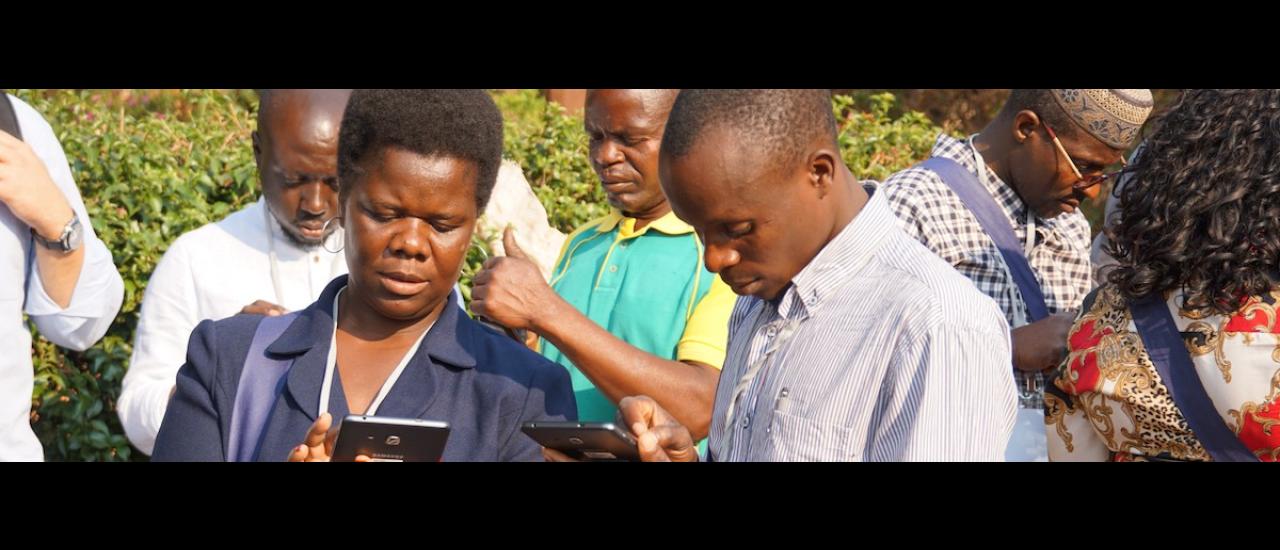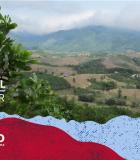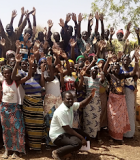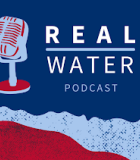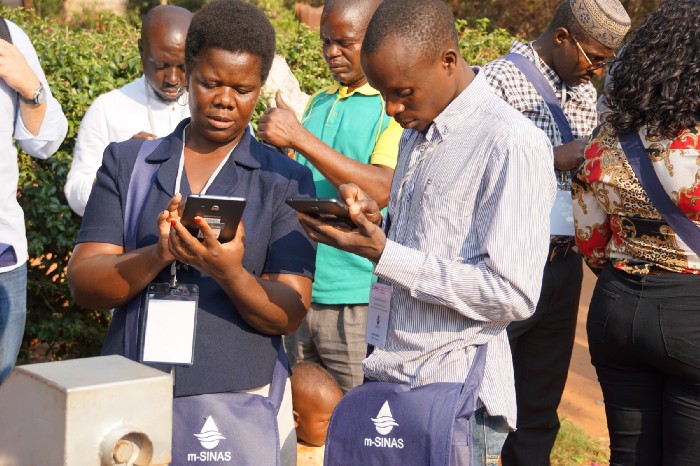
Photo credit: IWED Mozambique/ENGIRDO
In Focus, part of the USAID Center for Water’s Global Water Stories, is an occasional series that takes a broader and more technical look at USAID water activities that have been in place for some time to share approaches, results, and lessons learned.
Overview
Locations: Ethiopia, Ghana, Madagascar, Mozambique, Senegal, Tanzania
Duration: 2016-2020
Partners: Ministry of Water Irrigation and Energy and Oromia Water and Energy Resource Development Bureau (Ethiopia); Ministry of Sanitation and Water Resources (Ghana); Ministry of Water, Sanitation, and Hygiene (Madagascar); National Directorate of Water Supply and Sanitation (Mozambique); Directorate of Sanitation (Senegal); and Ministry of Health, Community Development, Gender, Elderly and Children (Tanzania)
Challenge
Despite widespread knowledge of the importance of water security and sanitation to health and economic development, access to safe water and improved sanitation in sub-Saharan Africa is still very low.
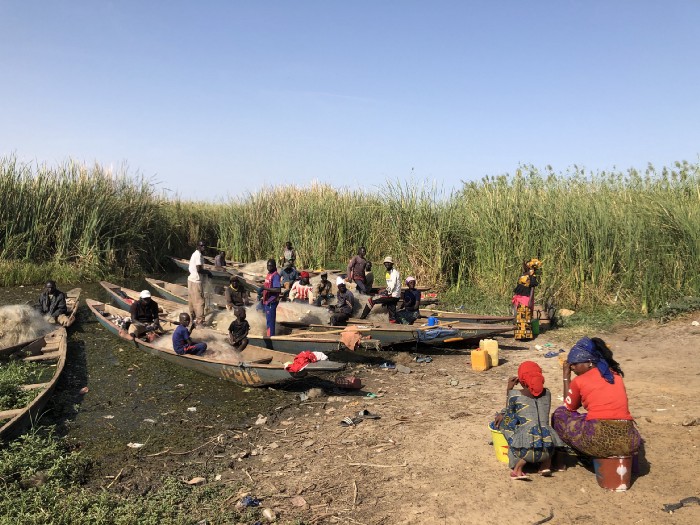
Photo credit: Photo credit: Theophane Boutrolle/WALIS
Data suggest that the lack of adequate water, sanitation, and hygiene (WASH) services is not solely the result of insufficient funding or technology but mostly due to ineffective resource allocation. However, governments must have access to accurate, reliable, and timely data to effectively allocate those resources and inform policy and investment decisions. In many African countries, sound sector data are lacking, which hinders their ability to make data-driven decisions. Without data, policymakers cannot identify needs, develop appropriate policies and/or interventions, allocate resources toward the most urgent priorities, or monitor and evaluate the effectiveness of development interventions.
Approach
USAID’s Water for Africa through Leadership and Institutional Support (WALIS) project focuses on building the capacity of sub-Saharan Africa’s national and regional leaders to capture and apply evidence in the development of policies, strategies, programs, and investments to improve the capacity of their water and sanitation sectors.
In 2016, WALIS initiated the Improving WASH Evidence-Based Decision-Making (IWED) program to encourage a shift toward sustainable services delivery, consistent with Sustainable Development Goal 6, through smarter use of data, better monitoring, greater emphasis on analysis, and evidence-building. The program also focuses on strengthening sector policies and strategies and encouraging sharing lessons learned and experience among African governments. As a first step, WALIS issued a call for Expressions of Interest from African countries that USAID designated as high-priority for WASH support. WALIS selected six countries — Ethiopia, Ghana, Madagascar, Mozambique, Senegal, and Tanzania — to receive an award of up to $250,000 to support demand-driven activities. Each award enabled government agencies to address key bottlenecks by developing tools and evidence-based decision-making processes to improve the performance of their WASH sectors. To ensure the sustainability of program achievements, IWED focused on collaboration with government structures and institutions. WALIS and the selected local implementing partners worked closely with government staff and supported WASH sector government agencies to execute the awards, while government agency representatives provided oversight in coordination with WALIS.
Because countries self-identified different needs, the IWED program took on different forms in each, as discussed in detail below.
Improved Knowledge Management for Ethiopia’s WASH Sector
It would take several hours for staff at Ethiopia’s Ministry of Water, Irrigation, and Energy (MOWIE) to locate a single document in its disorganized filing room. As a result, the ministry often lost important WASH sector information, resulting in duplicative work and a lack of knowledge sharing within the sector. Ethiopia’s ONE WASH National Program — a sector wide approach to planning, financing, and monitoring the Ethiopian WASH sector — recognizes the importance of knowledge management (KM) to create a coordinated countrywide WASH program. Therefore, one of the program goals is to create a robust KM system, which would strengthen sector capacity for planning, budgeting, and monitoring WASH services.
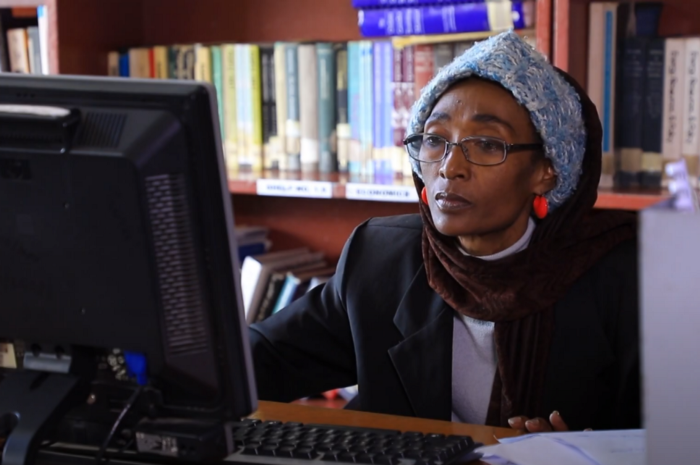
Photo credit: IWED Ethiopia/WaterAid Ethiopia
IWED support in Ethiopia focused on improving KM in the WASH sector, with a particular emphasis on MOWIE’s internal KM systems at the national and subnational level, and transferring knowledge to other stakeholders to make information available for management, planning, policy formation, and decision-making. The project team developed protocols, procedures, and workflows to guide the development, use, and sharing of knowledge among national-level ministries. WALIS also provided capacity development for staff to implement these practices at the national and subnational/regional level; the Oromia Water & Energy Resource Development Bureau (OWERDB) served as a regional pilot. Additionally, WALIS set up information and communications technology (ICT) infrastructure, including a high-end server and firewalls, to support the new KM system — a digitized version of the filing room that now allows users to easily find existing WASH sector resources, such as donor project reports and designs for drinking water systems.
Streamlining Data Collection and Management in Ghana
Ghana’s Ministry of Sanitation and Water Resources (MSWR) oversees the delivery of WASH services across the country, and coordinates sector activities to ensure efficient and productive use of resources. MSWR developed a Sector Information System (SIS) to provide key sector actors and the public with relevant WASH data for evidence-based decision-making. Poor data collection and management and fragmented data management systems (that did not feed into the SIS) undermined its function and usefulness as a decision-making tool. This made it difficult for MSWR to identify WASH service gaps at the national level and prioritize resources for filling these gaps.
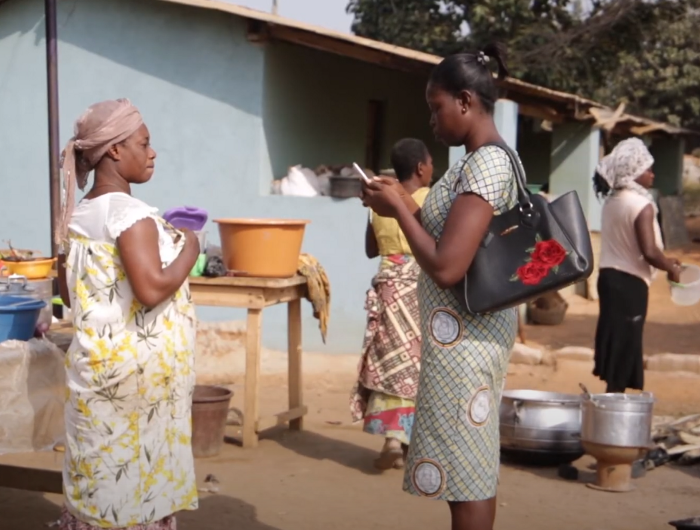
Photo credit: IWED Ghana/MAPLE Consult
To address this, WALIS supported MSWR to: (1) develop and implement standard WASH data collection, management, and reporting procedures and protocols from the local to national level; provide capacity building to different actors in the WASH sector to properly implement data collection procedures; (2) collect baseline data in selected regions; and (3) establish an integrated information system for the WASH sector that ensures data collected at the local level flows into the SIS at the national level. This improved system allows for the generation of sector reports and indicators the ministry requires to effectively target regions lacking improved WASH services.
Creating Better Access to “Water for All” in Madagascar
In 2017, Madagascar’s national and local leaders faced a major barrier to improving public health services for the country’s fast-growing population: incomplete or inaccurate data on access to safe water and sanitation sources. To help Madagascar’s Ministry of Water, Sanitation, and Hygiene reorganize the WASH sector and strengthen its systems, IWED supported the Budget Program per Regional Objective (BPOR) surveys for five regions in 2017. Before the BPOR process, some remote fokontany (districts) in these regions had never been officially surveyed. As a result, they had often been overlooked during planning and budgeting processes for WASH services and infrastructure.
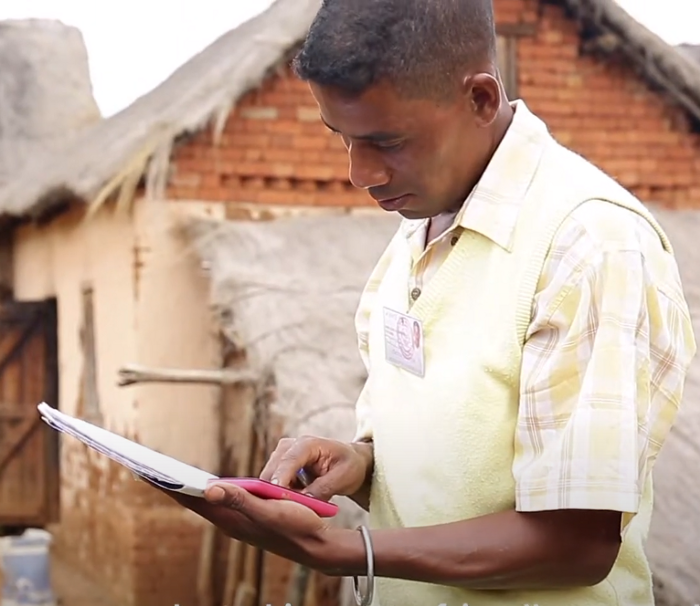
Photo credit: IWED Madagascar/WaterAid Madagascar
The BPOR data collection process served as the foundation upon which the Government of Madagascar developed a more realistic sectoral plan that considers village-level WASH needs, based on the surveys of communities across all 22 regions of the country (with additional support from USAID and UNICEF).
A Powerful Data Tool for WASH in Mozambique
In Mozambique, WALIS supported the Water Supply and Sanitation National Directorate (DNAAS) to strengthen its National Water and Sanitation Information System (SINAS). DNAAS officially launched SINAS in 2009 and designed it to cover the entire WASH sector as a single, integrated, sectorwide mechanism. Through the provision of timely, reliable, and publicly available data to plan, track investment programs, and monitor the sustainability of services, DNAAS intended SINAS to bolster sector oversight and accountability. However, SINAS relied upon manual, paper-based collection, and management of data at the local level, resulting in a fragmented, out-of-date system. This led to challenges in data accuracy, consistency, analysis, and sharing, and made it difficult for DNAAS to plan and monitor sector investments effectively.
To strengthen SINAS’s functionality, IWED harmonized the methodologies of collecting, processing, analyzing, and sharing data, and stored it in a consolidated and centralized database so it would be useful for planning purposes. After an initial ICT assessment, the IWED team agreed that it would develop a complementary mobile data collection tool, m-SINAS, alongside the centralized database. Technicians trained under the IWED program used these tools to collect data on water sources, water supply systems, and community sanitation and hygiene, including: location, number of people served, existence of a governance structure for the system, and water quality parameters. The IWED team also consolidated data from several regional-level systems into the central database. With IWED support, DNAAS procured IT hardware and software, completed mobile data collection, furnished a server room, seconded a data technician, and developed both m-SINAS and a WebGIS platform (http://www.sinasmz.com).
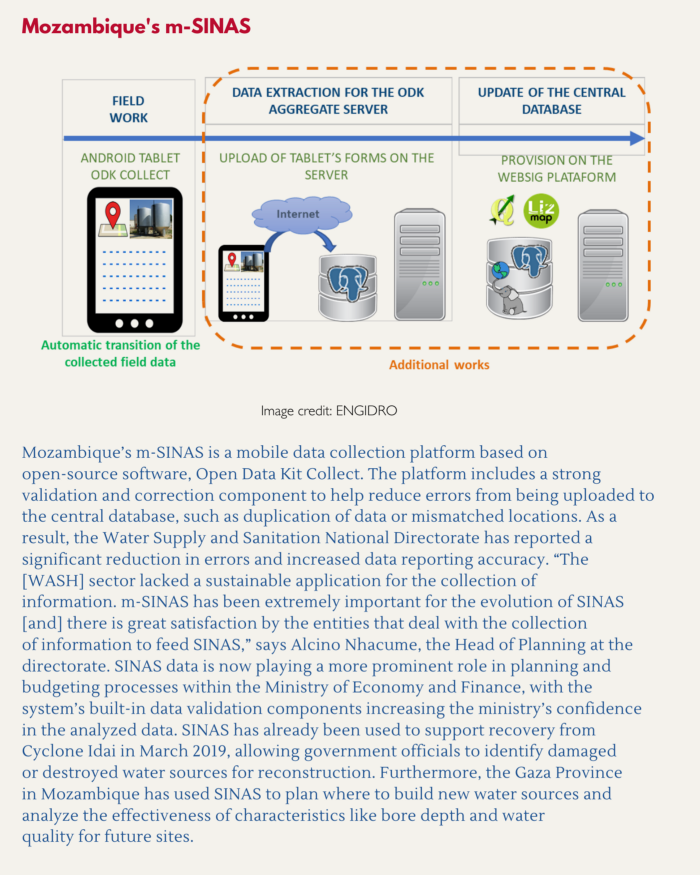
Using Technology to Preserve Senegal’s Freshwater Ecosystem
Lac de Guiers is the centerpiece of a complex water ecosystem that supplies 70 percent of the water consumed by 4 million people in Dakar and its suburbs. Recent environmental shifts as well as the lake’s vital importance to the environment, agriculture, and water supply for millions of people, have driven the Government of Senegal to better plan and manage this vital resource through evidence-based decision-making. To support the government’s initiative, the IWED program currently works with the National Directorate of Water Resources Management and Planning to measure the change of Lac de Guiers’ water-related ecosystem over time, including water quality. The IWED team is using state-of-the-art satellite imagery to measure seasonal changes in the aquatic vegetation of Lac de Guiers and adjacent wetland areas to determine the effectiveness of efforts to reduce its spread. The team is also using water quality analysis test kits to monitor ambient water quality in the lake.
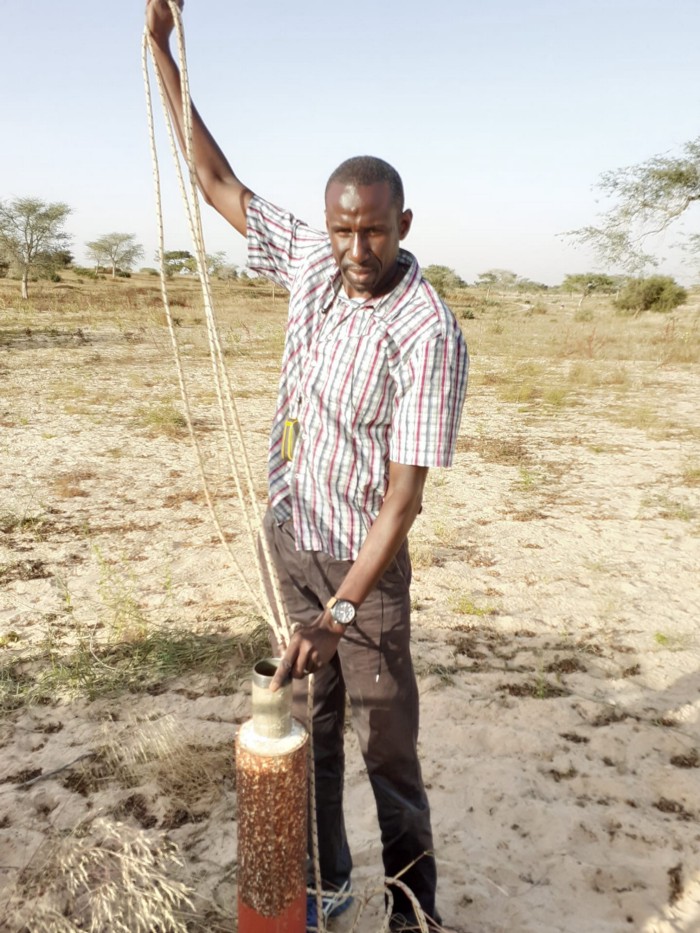
Photo credit: IWED Senegal/Bocar Sall/National Directorate of Water Resources Management and Planning
IWED is also working with the Directorate of Sanitation to develop an asset management inventory monitoring system for public sanitation facilities in schools and health care facilities. The directorate will host the completed inventory on a web-accessible application that is capable of georeferencing all public sanitation facilities to enable their improved management.
Transparency for Tanzania’s Water and Sanitation Data
To improve its WASH data collection, storage, and decision-making processes, Tanzania’s Ministry of Health, Community Development, Gender, Elderly and Children (MOHCDGEC) developed an electronic National Sanitation and Management Information System (NSMIS) in 2012. The ministry intended NSMIS to disseminate information to a broader range of stakeholders and provide reliable and accurate data as an advocacy tool for decision-makers. However, only ministry staff with specific software skills and government log-in credentials could access the WASH data on the platform. This meant that other stakeholders, including regional and district-level officials, could not view or make decisions using WASH data collected across the country, thus undermining NSMIS’s objective to be a transparent tool for advocacy.
Through IWED, WALIS helped MOHCDGEC increase access to quality data via the development of a national WASH web portal. This initiative is in line with the Government of Tanzania’s constitutional commitment to make information easily accessible to all. The web portal now allows other agencies, like Tanzania’s National Bureau of Statistics (NBS), to easily access WASH data at a regional/district level, filling the gaps from the NBS survey data — which is only conducted once every five years. Furthermore, the regions and districts can now see how they are improving over time compared to the other regions and districts in the country.
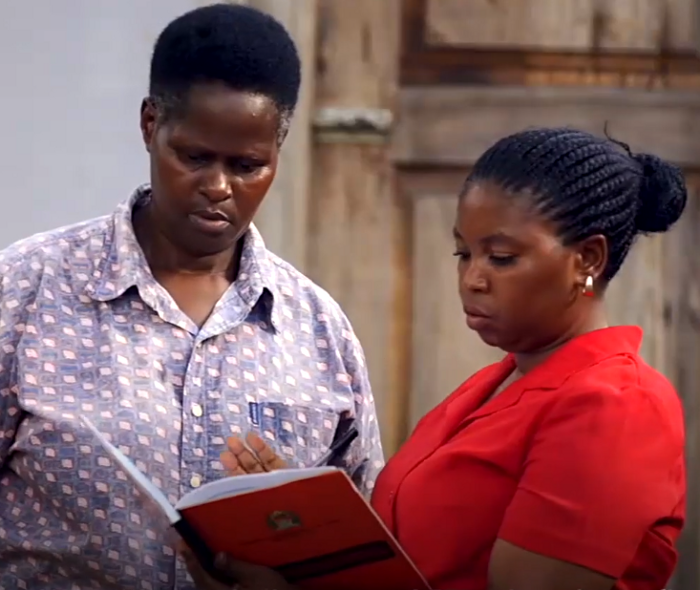
Photo credit: Photo credit: IWED Tanzania/ABC Bros
Results
IWED’s work to enhance the ability of each partner country to make data-driven decisions involved improving existing data collection, analysis, storage, and reporting procedures and systems. Where necessary, it also included upgrading ICT infrastructure. Refined and standardized data protocols in the focus countries have made it easier to collect data in a timely fashion and made access to these data easier for the relevant government ministries and other stakeholders who need it in their planning processes.
- In Ethiopia, IWED digitized 2,469 ministry and OWERDB–generated WASH knowledge products. These knowledge products are now stored on a KM system that the IWED team synchronized with a new, higher-capacity server so that all end-users in both institutions can easily upload, access, and retrieve the data. These improvements increase the ministry’s online capacity to store generated knowledge, and enhance OWERDB’s ability to access information, including through remote access to their intranet. To support the sustainability of the new system and institutionalize a culture of KM within the WASH sector, IWED developed KM guidelines and a flexible training program for existing and new MOWIE and OWERDB staff and trainers.
- In Ghana, 72 trained enumerators conducted a baseline WASH survey of 5,292 households across six selected regions — Savelugu, Kumbungu, Central Gonja, Juaben, Atwima Mponua, and Kumasi — using newly standardized data collection procedures. Data points for the survey included: the percentage of the population with at least basic access to drinking water, access to at least basic toilet facilities, and access to handwashing facilities; the WASH Economic Equity Index Score; and the WASH Gender Equity Index Score. Data collected from the household surveys and other secondary data were then imported into the central SIS, which the IWED team analyzed to come up with the baseline figures for MSWR indicators. This approach will allow MSWR to have proper tools and systems in place before going to scale at the national level.
- For Madagascar’s BPOR process, 90 trained enumerators surveyed 20,159 villages in five regions — Diana, Vakianakaratra, Haute Matsiatra, Amoron’I Mania, and Vatovary Fitovinany — at the fokontany and hamlet level via focus groups. Using smartphones, the enumerators collected data electronically and integrated them via the Madagascar Water and Sanitation Monitoring online system. Surveyors found that in districts such as Vatovary Fitovinany, only 3.3 percent of the population had sufficient access to latrines, and less than1 percent of the population had access to the kind of ventilated, improved pit latrines necessary for improving health standards. While these numbers are not unusual for Madagascar, they help the government better identify the needs of communities for a more effective allocation of WASH resources and infrastructure during budgeting processes.
As a result, the BPOR process improved the government’s WASH services’ development and financial planning models. The Ministry of Water, Sanitation and Hygiene used the Results from the BPOR process in budget preparation and development of a revamped national WASH sector plan that takes into account the WASH needs of all citizens, and to identify the infrastructure needs and financial cost of achieving universal access to WASH by 2030.
- In Mozambique, WALIS trained 84 provincial and district technicians on the newly developed data collection and management methodologies for SINAS using the new m-SINAS tool. Using tablets with preloaded questionnaires, the trained technicians surveyed the number of water sources, water systems, and communities across four provinces — Maputo, Sofala, Manica, and Cabo Delgado. The technicians using this mobile technology had far fewer data errors and greater reporting accuracy in their surveys. With the aim of scaling up nationally, WALIS supported the government’s expansion of the use of m-SINAS to six additional provinces on a new Open Data Kit platform that is more compatible, flexible, and financially sustainable than previous SINAS technologies. As of December 2019, technicians had conducted more than 6,500 surveys across all provinces using m-SINAS, and they registered about one-third of the country’s water sources.
As the integration of information from the various regional databases into SINAS continues, the system can more precisely pinpoint WASH infrastructure and services, which provides the districts, provinces, and national government with much-needed information to use in their policymaking, planning, and budgeting. As of project close in December 2019, 13,213 water sources had been added into the system. The success of m-SINAS has since seen the technology and methodology replicated across other government ministries and adopted as the national standard for data collection and management.
- To support Senegal’s Directorate of Water Resources Management and Planning to measure the change of Lac de Guiers’ water-related ecosystem, the IWED program trained 15 directorate technicians on water quality data collection, analysis, and dissemination methods. Water sampling began in December 2019, and the technicians collected more than 132 samples. The directorate will use the results of the water sampling exercise to formulate a draft policy and strategy to better manage surface water in the areas studied, and to develop a polluters-pay policy and strategy, which will help counteract increasing pollution from anthropogenic sources.
- In Tanzania, the new WASH web portal is the country’s first open-source repository for WASH data, which the IWED team rolled out in a series of training sessions held in December 2019. More than 130 participants attended the training sessions, including regional and district health officers within MOHCDGEC, research institutions, donor groups, local media, and higher learning institutions — all groups that previously could not access the WASH data housed in the NSMIS. The web portal has quickly become a key resource for research, planning, and informed decision-making for various stakeholders, enhancing the credibility of their work and that of the Government of Tanzania.
Lessons Learned
- Supporting a demand-driven, government-led activity is the best way to ensure the sustainability of newly introduced systems or protocols. At the same time, collaborating with the relevant government agencies at the initiation of program design ensures that there is no duplication of existing country initiatives.
- Multistakeholder collaboration requires the continuous engagement of all stakeholders throughout the project’s implementation. Setting up regular in-person meetings and check-in calls help maintain the project’s momentum and ensure project ownership at all levels. Similarly, when working with highly decentralized government structures, forming a national or regional task force that represents the key agencies or institutions allows for effective joint planning, coordination, implementation, and supervision of processes.
- It is difficult to successfully conduct an exercise at the local or community level without engaging local and/or regional leaders. As community gatekeepers, local leaders are best placed to disseminate information to their communities and to mobilize community members to participate in national initiatives, and should be included in national-level planning processes.
- A KM system is only as good as its data, so well-trained data collectors and validators are an invaluable part of the entire system. Building human resource capacity through training sessions and on-the-job training is important to reduce human error in data and knowledge processes and to ensure a system’s sustainability.

